The first licensed Amazon Echo clone is cute, weird and very flawed
The Amazon Echo is a black cylinder that sits on a shelf and responds to your spoken commands, like Siri for the home. Critics and customers alike adore this thing (here’s my review).
But, as a wise man once said: “What’s astonishing is that no other company is making a rival. Amazon has invented a product category with only one product in it.”
(OK, it was me.)
Well, it didn’t take long. Suddenly, voice assistants for the home are multiplying like rabbits. Amazon has introduced two spinoff models: the Tap, which is a battery-powered Echo, and the Dot, which is a very small Echo. Google has now announced an Echo copycat called Google Home, and Apple is rumored to be working on one, too. Finally, intriguingly enough, Amazon has begun offering its Echo technology to other companies, in hopes of letting a thousand Echoes bloom.
The first one has now arrived, courtesy of a French company called Invoxia. It’s cute, it’s weird, it’s flawed, and it takes Echo spoken commands. Meet the Triby ($170).
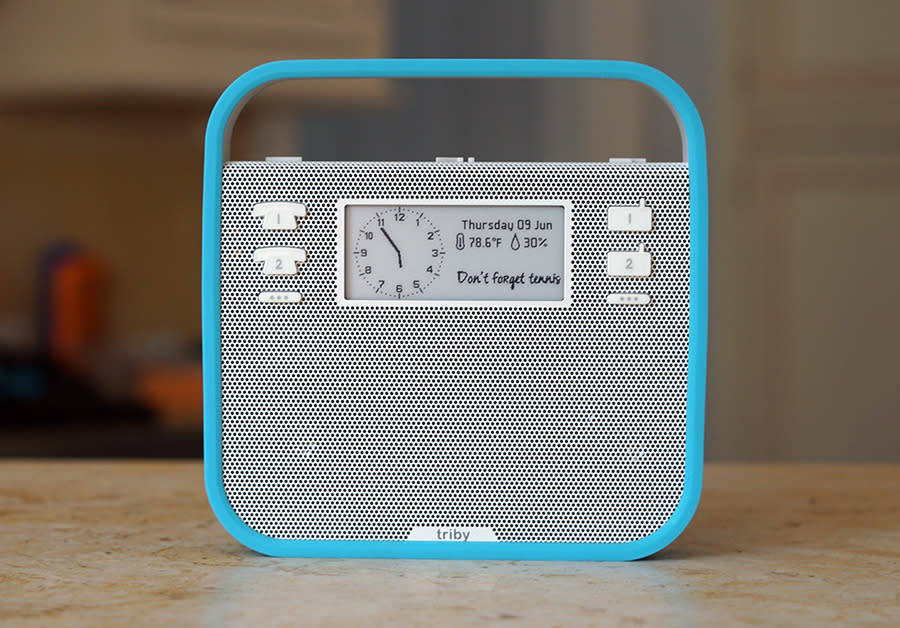
Parts of the sum
Triby (pronounced “tribby”) doesn’t look high-tech at all — on purpose. It’s meant to be friendly, charming, and kid-friendly. It looks vaguely like a flattened radio, complete with a carrying handle, and it has a colorful rubber bumper all the way around. The black-and-white e-ink screen is always on; if it has nothing else to say, it shows the current time and date, temperature, and humidity.
Functionally, the Triby is a remix — a peculiar new stew of familiar ingredients.
Since it’s vaguely radio shaped, let’s deal with that first. Yes, the Triby is a radio, a portable, battery-operated internet radio that you can carry around the house with you. Two physical buttons on the front can store your two favorite stations (you choose which they are using the Triby phone app); your presets can include favorite Spotify playlists, which is fantastic. (Weirdly, though, you can’t voice-request Spotify playlists, as you can on the real Echo.)
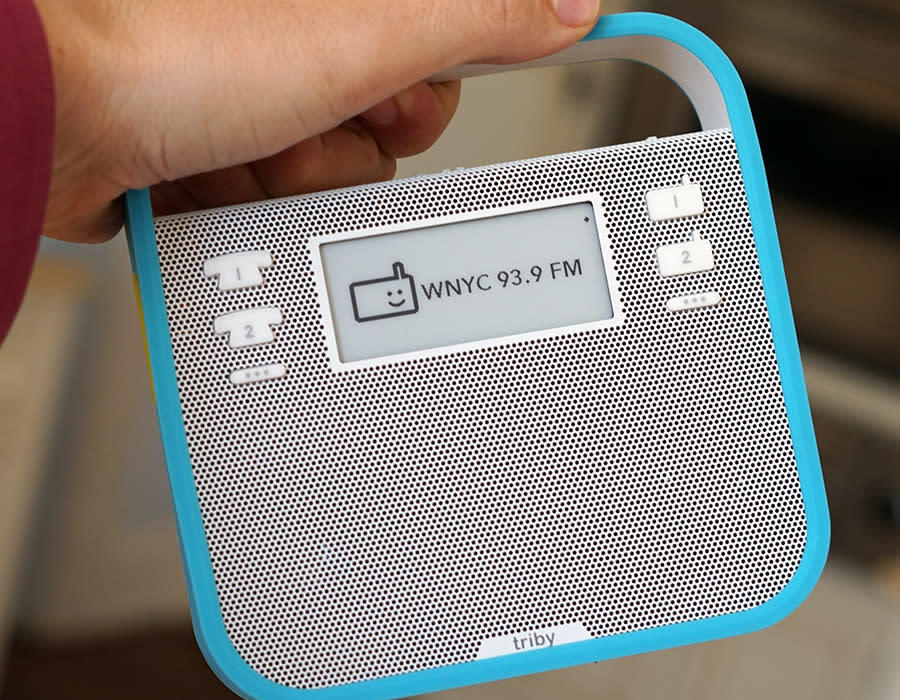
A third button produces a list of additional stations that you can scroll through. On top of the Triby, there are Play/Pause and Previous/Next buttons.
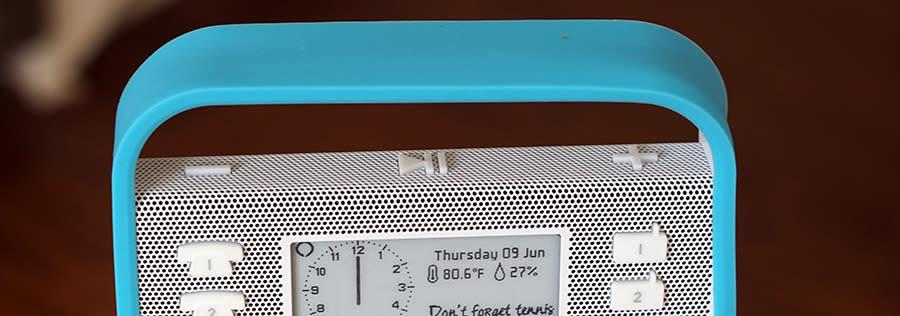
Clearly, there’s no room for 22-inch speakers inside this thing. But the sound quality is at the upper range of what you’d expect, and the top volume is easily loud enough to be heard over running water or sizzling bacon.
Which is lucky, since the kitchen is obviously where this thing is supposed to go. It has two strong magnets on the back, for handy slapping onto a refrigerator.

You do, however, have to yank it off every couple of days to recharge its battery. (You can make the battery last a lot longer if you turn off the always-listening Echo feature, and instead press the button on the right side when you want to issue a spoken command.)
Messaging
As a proud occupant of the kitchen, the Triby is also a message center. Using its app, from anywhere in the world, any family member can type or even draw little messages. In seconds, accompanied by a happy chirp, the message appears on the Triby’s black-and-white e-Ink screen back at home:
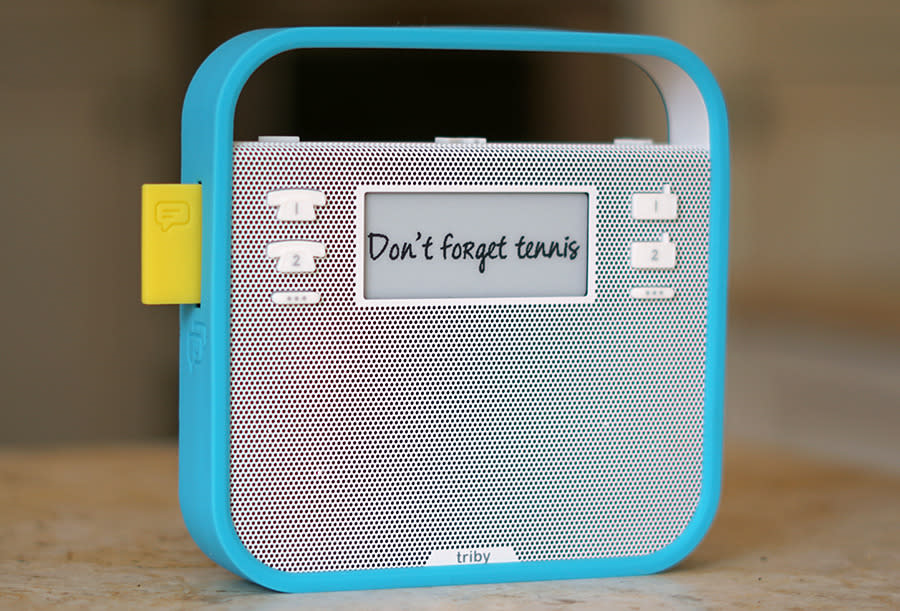
The weirdest, cutest part is the spring-loaded, plastic yellow Post-It note that pops out of the Triby’s left side — a bizarre, low-tech New Message indicator.
You can either shove it back into the body of the Triby, or you can press the emoji button underneath it — and reply to the received message by selecting one of eight smiley-face icons. Since there’s no way to type or speak a reply, it’s a good way to say to your message-sending family member, “OK, got it.”
The phone app also lets you send typed or sketched messages to other people in your family, assuming they’ve all got the Triby app. This part of the app keeps track of the little messages you’ve sent, for ease of re-sending later.
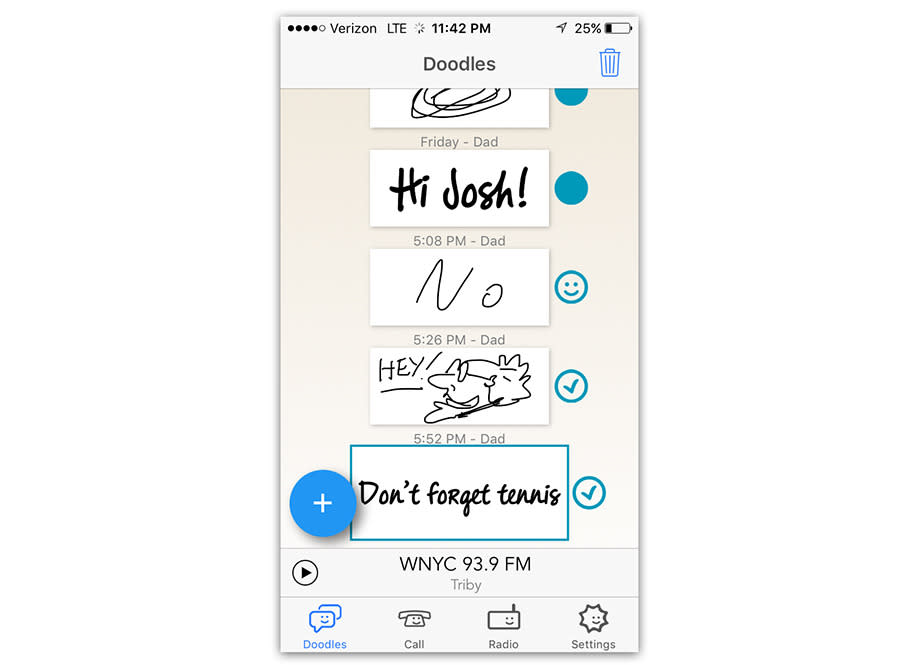
The Triby is also a very loud, very good speakerphone for phone calls — again, handy if you’re busy or greasy with other things in the kitchen.
There are even two speed-dial buttons on the Triby itself, which you can program to make a free internet phone call to the smartphone of, for example, Mom and Dad. (Here again, a third button produces a list of additional “speed dial” names.)
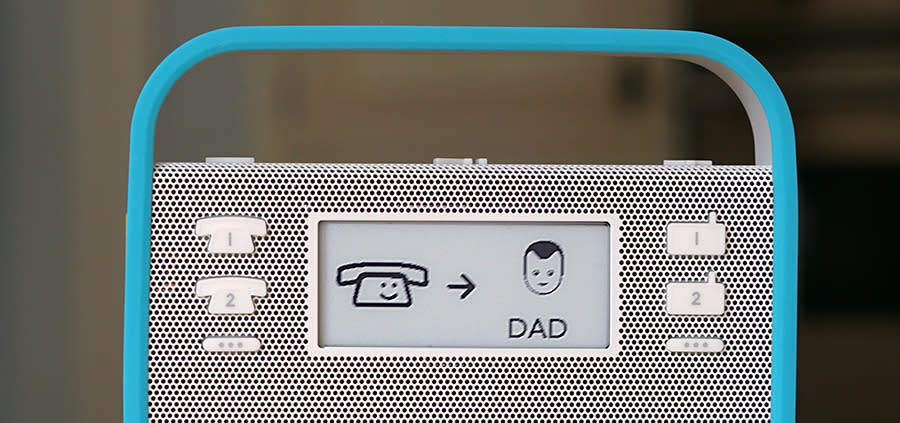
If one of your home’s occupants doesn’t have a smartphone — hey, it could happen — these buttons make a pretty great emergency communication system. Even a 3-year-old could learn to mash one of those buttons whenever she wants to speak to her mom or dad.
And then comes Alexa
I’ve saved the best for last: The Triby is also an Echo. Whenever you say your virtual assistant’s name (which can be Alexa, Amazon, or Echo), the Play button lights up, and the Triby listens for a spoken command.
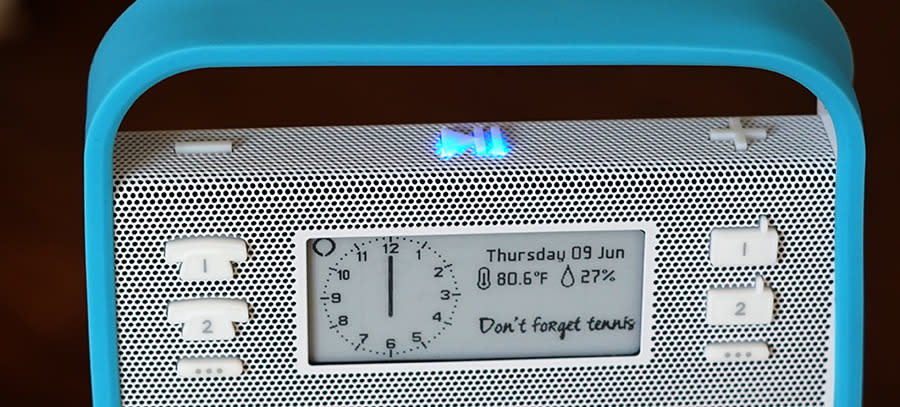
You know, the usual:
“Alexa, play Coldplay.” Ask for any band, song, album, genre, and the music just starts. If, that is, you’ve set up an Amazon Prime or iHeartRadio account.
“Alexa, play WCBS.” You can request any radio station.
“Alexa, what’s the news?” Alexa plays NPR’s latest headline summary.
“Alexa, what’s the weather in Dallas this weekend?” As you’d expect.
“Alexa, set a timer for 20 minutes.” World’s easiest kitchen alarm.
“Alexa, wake me up at 7:20 a.m.” The Echo is rock-solid on alarms.
“Alexa, how far is it from Chicago to Tampa?” She’ll convert units, give you historical or geographical facts, calculate the days of the week for dates, fill you in on movie and music trivia, and on and on.
“Alexa, when do the Cavaliers play next?” She’s up on schedules and teams.
“Alexa: Wikipedia ‘Taylor Swift.’” She reads the first couple of lines from the corresponding Wikipedia entry.
“Alexa, how do you spell fluorescent?” She can spell or define any word.
“Alexa, when’s my next appointment?” You can ask various things about your Google calendar, once you’ve told the Echo app your Google account details.
“Alexa, ask Uber for a ride.” Triby tells you how many minutes away the nearest car is, and asks if you want to continue or cancel. It’s quite awesome.
“Alexa, tell me a joke.” She’s always good for a short, painful pun or two. (“Here’s a tip: If you have a fear of elevators, take steps to avoid them.”)
There are hundreds more commands. In fact, Amazon has been aggressively adding new features to the Echo — new vocabulary for Alexa — every week, and therefore the Triby also gets more useful over time.
Just because the Triby has inherited Alexa’s spirit doesn’t make it a full Alexa clone, though. The Triby is slower to respond to your commands than an actual Echo, and more likely to misunderstand them. That’s particularly frustrating when you’re listening to the radio on Triby; you have to pause the radio before you can get Triby to listen to a command.
The Triby can respond to almost any Echo command, but not all of them. Some of the “skills” (add-on Echo features written by independent programmers) don’t work on the Triby. You can’t voice-request songs from Spotify or Pandora. You can ask for an alarm, but not more than one, and you can’t specify the volume. The Triby can’t auto-connect to smart-home products like Hue light bulbs and WeMo internet-connected power strips (although you can control them if you’ve set them up with an actual Echo).
The trouble with Triby
Every now and then, some electronics company thinks that what the modern kitchen really needs is a family communications hub. Remember the 3Com Audrey? Gateway Connected Touch Pad? Compaq iPaq IA-1? Honeywell WebPad?
They’re always underpowered and goofy, and they always die an ignominious death in the marketplace.
The Triby is treading on a path littered with the corpses of earlier attempts at making a kitchen computer hub.
That’s not the only strike against it. Here’s another: It’s not polished. There’s no instruction manual. Alexa sometimes ignores you. And there are bugs.
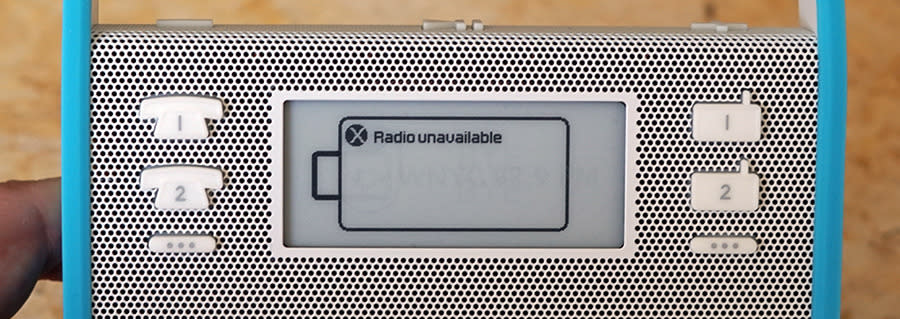
The big problem, though, may be this. Just about every person who sees the Triby’s repertoire winds up saying, “Why not just use your phone?”
And that’s kind of a good point. Your phone already takes spoken commands, plays internet radio, and makes free internet phone calls. It already lets you send texts and calls to other people. Who, exactly, would benefit from a $170 gadget that duplicates those functions in a static location?
Here’s one possible answer: “young children or old relatives.” Thanks to its rugged design, its big buttons, its simple layout, its bright yellow “you’ve got a message” flag, and its one-touch speed-dial speakerphone functions, the Triby makes a useful, nonthreatening link between you and your very young or very old loved ones back home.
Everyone else can be forgiven for passing over the Triby — but not before taking note of its arrival. Maybe the Triby isn’t destined to adorn many fridge doors any time soon. But as the first licensed Amazon Echo clone, it’s an important harbinger of future offerings. It’s our first inkling that very soon, all kinds of things in our homes will listen to our commands, and obey.
David Pogue is the founder of Yahoo Tech; here’s how to get his columns by email. On the Web, he’s davidpogue.com. On Twitter, he’s @pogue. On email, he’s [email protected]. He welcomes non-toxic comments in the Comments below.